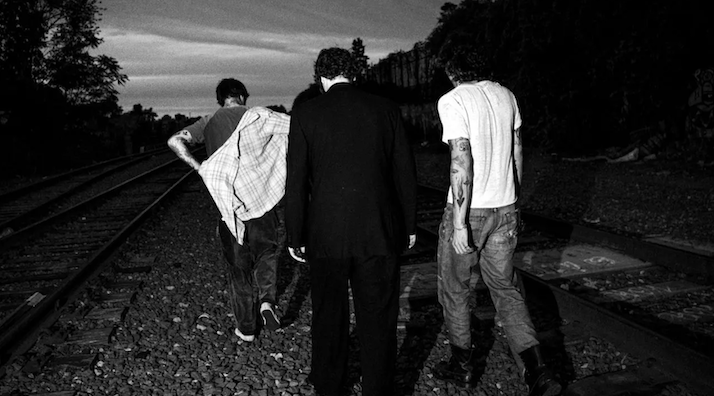NewDad's Debut LP 'Madra' Is a Hallmark of New Generation Shoegaze

Photo: Alice Backham
Galway shoegaze four-piece NewDad reconnects with their musical roots in their debut album, Madra. Digging deep into the shoegaze and rock sonics that soundtracked their formative years—bands like Pixies, The Cure, and Slowdive—and blending that with glimmers of indie and pop that references their earlier discography, the record marks NewDad as one of Ireland's most promising guitar bands.
"Madra meaning dog in Irish explores various difficult parts of the human condition and the idea of the title is that these feelings that come up are sometimes ones you can't escape, feelings that follow you around like a dog," shares singer and guitarist Julie Dawson. "We had an amazing team around us who helped bring these songs to life, and we're so excited for this album to be out in the world. We hope that people connect with the songs and that Madra can be a comfort to everyone who listens."
The opening track "Angel" aims to introduce who NewDad is from the jump. It sees the band meld a gust of distortion with enigmatic lyrics, balancing the precipice between destruction and ecstasy. "You're an angel / I'm just trying to be like you," sings vocalist and guitarist Julie Dawson, "Even if it's painful." The track highlights the band's flare for creating maximum-volume shoegaze and delivers with more confidence than the band has ever displayed before.
"Sickly Sweet" is a stylish effort that shows off Cara Joshi's high-tier bass chops. Meanwhile, Dawson's lyrics explore and focus on repetition and how unhealthy patterns can be difficult to shake, almost like a sickness. In the addictive chorus, she croons, "You're sickly sweet / You're sweetly sick / A shiny thing, I want to pick / Take a bite and spit you out / Done this so many times that I've lost count."
Other standout tracks throughout the record include the gentle ballad "Where I Go," the maddening "In My Head," the conflicted "Nosebleed," and the post-punk influenced "Let Go" and "Dream of Me." Dawson has a way with words regarding this brand of self-flagellating angst, especially on the latter track. It's a tale of love not so much unrequited as unreciprocated.
When listeners finally reach "White Ribbons," they're met with a message of hope and a reminder that recovery is always possible. The track wraps Dawson's delicate murmur, and the chorus hooks listeners in with the haunting lines, "It's so pretty how you mend yourself / White Ribbons wrapped around me," playing alongside dream-like instrumentation that portrays a sense of loving desperation. It's a playful yet poignant contrast that lets the album's themes cut through the noise and speak clearly to the listener.
The closing title track, "Madra," is an outstanding send-off that climaxes the record in a gorgeously strange fashion. Dawson searches for redemption and realizes she can't find it anywhere, concluding, "I'm just really sorry that you even have to be around me." The choruses see Dawson oscillate between succumbing to her numbness and feeling "everything at once." As she tries to wrangle with these excessive highs and lows, listeners are led to a delightfully messy instrumental break that feels like a sonic representation of the chaos inside her mind and heart.
Listen to Madra below:


![Coach Party Celebrates a Sickly Sweet Album and In-Your-Face Single, "Nurse Depression" [Q&A]](https://s3-us-west-2.amazonaws.com/onestowatch-v2/coach_party2025(2)-1769536377.jpg)
